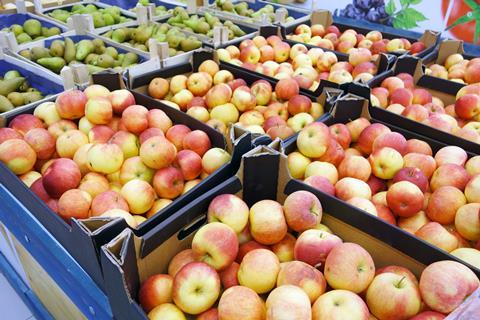The latest edition of Freshfel’s Consumption Monitor has been released, highlighting how the positive trend that started during the Covid-19 pandemic has already been curbed
Freshfel Europe has today (3 April) released the latest edition of its Consumption Monitor, having first outlined some of the early conclusions from its findings in January.

This year’s edition showed that the average fruit and vegetable consumption in the EU grew to 364.58 g/day/capita in 2021, a 2.19 per cent increase from 2020 and 1.27 per cent above the average of the previous five years.
This is still, however, almost 10 per cent below the minimum 400g/day/capita recommended by the World Health Organization (WHO).
In 2021, the EU-27 fresh produce market size reached 74.35m tonnes, growth in line with the positive trend that started in 2020 with the Covid-19 pandemic.
However, Freshfel pointed out that fruit and vegetable consumption had come under pressure in Europe because of the economic crisis following the outbreak of the war in Ukraine in 2022, severely impacting consumer purchasing power and limiting food expenditure.
“In times of crisis, consumers tend to move towards a less healthy diet, which is perceived to be more energy satisfactory and a cheaper food option than fruit and vegetables,” explained Philippe Binard, general delegate of Freshfel Europe.
”The 2022 and early 2023 trends clearly indicate that the post-pandemic consumption growth has been lost, as consumption has declined by more than 10 per cent in many cases,” he continued. ”These latest developments, which are not yet incorporated into this year’s Consumption Monitor, will be confirmed in the upcoming editions.”
The Freshfel Europe Consumption Monitor confirmed that only a few countries in the EU reached the recommended goal of at least 400g of fresh fruits and vegetables/day/capita.
Despite the growth in consumption in 2021, more needed to be done to stimulate consumption, in particular in light of the latest developments, the association said.
”Freshfel Europe believes there can be no compromise on the urgency of actions needed to address the consumption challenge,” it stated. ”The fruit and vegetable sector should keep building on the momentum of increased consumption based on the benefits of fresh fruit and vegetables for the planet, the climate, and the health of the consumers themselves.
”This is also reflected by the current priorities on the European agenda, such as the Green Deal, the Farm to Fork Strategy, the FIT55 target, the Circular Economy Action Plan, as well as Europe’s Beating Cancer Plan where fruits and vegetables are not part of the problem but part of the solution. Fresh produce must be recognised as essential products.”
Freshfel said it was also concerned that, according to a 2019 Eurostat survey, 33 per cent of EU consumers consume zero portions of fruit and vegetables each day, and another 55 per cent do not reach the five recommended portions per day.
A further source of concern was that the lowest consumption rates were seen amongst the younger generations and in lower-income households.
“The younger generations are the consumers of tomorrow, and more efforts must be made to educate and introduce young people to the versatility and qualities of fresh fruits and vegetables,” Binard outlined.
The association pointed out that fruit and vegetables had many assets and were an affordable food option for European consumers.
However, despite the momentum to move towards a plant diet, a number of misperceptions created obstacles to consumption.
“We need to counter the misperception that fruits and vegetables are expensive,” said Freshfel Europe president Salvo Laudani.
”The sector needs to reinforce its message to demonstrate that it operates within a sustainable food systems format to deliver affordable, nutritional and healthy products in order to move consumers towards a plant diet.”
Boosting consumption and reaching the recommended 400g/day/capita by adding one piece of fruit or vegetables to the daily diet of European consumers would boost the European market size by almost 20 per cent or 15m tonnes, Freshfel noted.
For the consumer, a healthy diet that reaches the minimum recommendation remained affordable and could be achieved for less than 2 €/day, it concluded.



